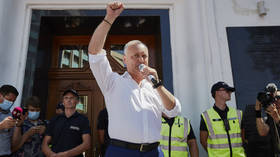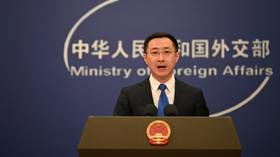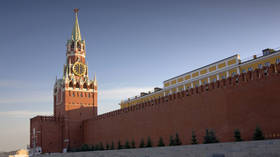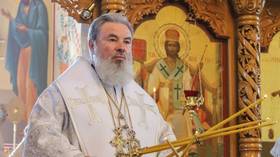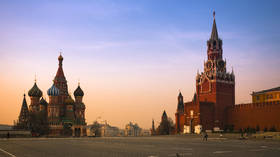#1917LIVE: Detained Russian tsar & his family moved to Siberia
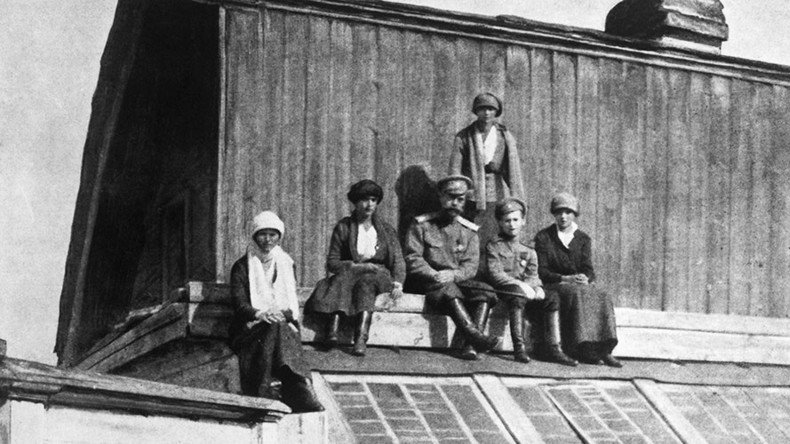
Having spent the summer of 1917 under house arrest in their own palace near Petrograd, former Russian Tsar Nicholas II and his family are now being moved to Siberia: their train to Tobolsk has departed on August 14th.
Nicholas Romanov, his wife Alexandra and five children were placed under guard in the Alexander palace in Tsarskoye Selo on March 22, 1917 after the February Revolution deposed the centuries-old Russian monarchy.
HAPPENING NOW: @NicholasII_1917 with family en route to Tobolsk, accompanied by 50 people, including 15 butlers, 4 cooks & doctor #1917LIVEpic.twitter.com/wARyZmYuc1
— Russian Telegraph (@RT_1917) August 14, 2017
They were only allowed to spend time outside on a small plot of land, forbidden to move further out into the spacious former Imperial gardens by soldiers on constant duty.
I spend much more time with my family than in the past years. We work in the garden, tend vegetable patches, read books #1917LIVEpic.twitter.com/ZMlg6TiKbZ
— Nicholas Romanov (@NicholasII_1917) May 31, 2017
Once enjoying the sacred status of the Autocrat of All the Russias, now the former monarch was kept prisoner with his family under the guard of soldiers who had once pledged allegiance to the tsar.
Nicholas was permitted small pleasures: he enjoyed chopping wood during his time outside.
It's been the hottest day of this summer so far, +24° degrees. Still, we managed to saw 2 spruces #1917LIVE#NationalSelfieDaypic.twitter.com/7vRjHCv7In
— Nicholas Romanov (@NicholasII_1917) June 21, 2017
Inside, the guards moved freely about the palace, often acting in a disrespectful manner, sitting and smoking on sick Alexandra’s bedside, using obscene language in front of the girls.
The officers and soldiers who were by the imperial family during reign were mostly all gone at war: the Russian Empire lost nearly 2 million troops during World War I.
I personally supervised everything related to @NicholasII_1917’s relocation to avoid slightest risk of losing grip on situation 👌 #1917LIVEhttps://t.co/p1od87Cp2o
— Alexander Kerensky (@Kerensky_1917) August 14, 2017
Chairman of the Russian Provisional Government Alexander Kerensky and Foreign Minister Pavel Milyukov made several attempts to seek asylum for the Imperial Family in reigning houses of Europe to which both Nicholas and Alexandra (Queen Victoria’s granddaughter) were related: but everyone refused, including the British Empire – the family’s greatest hope for survival.
Just learnt we’ll be forwarded to unknown provincial town very soon. We hoped so much to stay in our Livadia Palace in Crimea! #1917LIVEpic.twitter.com/4viBVNyPbf
— Nicholas Romanov (@NicholasII_1917) August 10, 2017
The destination of Siberia was chosen for safety rather than severity of conditions. At first Kerensky promised the family ‘Livadia’, their Crimea palace, but the roads south were too dangerous so eventually he settled on Tobolsk – a Siberian town so remote, that the revolutionary fervor had not yet reached it.
MORE: Decision to take former Tsar from Tsarskoe Selo was made following multiple demands from various orgs, incl @PetroSoviet1917#1917LIVE
— Russian Telegraph (@RT_1917) August 14, 2017
So, we left Tsarskoe Selo. Beautiful morning. Our train heads to Northern railway line #1917LIVE
— Nicholas Romanov (@NicholasII_1917) August 14, 2017
And so a week-long journey in a train disguised as the Japanese Red Cross mission had begun.
Up to 200 specially-selected servicemen guard @NicholasII_1917 departure & train. Servicemen guards traveling on separate train #1917LIVE
— Russian Telegraph (@RT_1917) August 14, 2017



